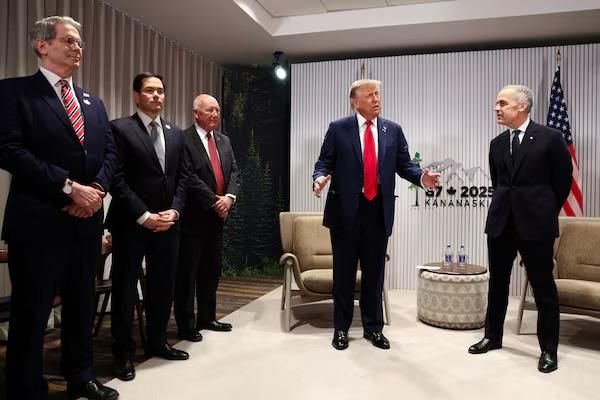KANANASKIS, (Rajeev Sharma): Canadian Prime Minister Mark Carney, hosting his first G7 Summit, struck a diplomatic tone, prioritizing unity among global leaders amid growing geopolitical tensions. Departing from tradition, Carney opted to replace the usual joint communiqué with “thematic statements”, aiming to reduce discord and highlight shared values.
In a bilateral meeting with Donald Trump, Carney began by wishing the former U.S. president a belated 79th birthday and emphasized that the summit’s effectiveness depends on strong U.S. leadership.
Trump, characteristically direct, reaffirmed his stance as a “tariff person” while expressing optimism about negotiating a new U.S.-Canada trade deal. Though he acknowledged differences with Carney’s more measured economic approach, Trump said both leaders were “working to see if we can get to the bottom of it.”
On global security issues, Trump criticized the 2014 decision to remove Russia from the G8, calling it a “mistake” and suggesting that Russia’s inclusion might have prevented some current conflicts. Regarding the escalating Iran-Israel tensions, he revealed that Iran has shown willingness to negotiate its nuclear program and added that “Iran is not winning,” calling for urgent diplomatic talks.

Notably, Trump declined to sign the G7’s draft statement urging de-escalation in the Middle East, opting to keep the U.S. position intentionally ambiguous. In a lighter moment, Trump used the summit stage to promote his new venture, Trump Mobile, a smartphone brand he touted as a future disruptor. He also floated the controversial idea of including China in the G7, a move likely to stir debate among Western allies.

